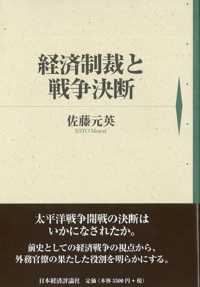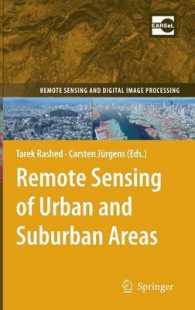- ホーム
- > 洋書
- > 英文書
- > Science / Mathematics
Full Description
Smart City and sensing platforms are considered some of the most significant topics in the Internet of Things (IoT). Sensors are at the heart of the IoT, and their development is a key issue if such concepts are to achieve their full potential.
This book addresses the major challenges in realizing smart city and sensing platforms in the era of the IoT and the Cloud. Challenges vary from cost and energy efficiency to availability and service quality. To tackle these challenges, sensors must meet certain expectations and requirements such as size constraints, manufacturing costs and resistance to environmental factors.
This book focuses on both the design and implementation aspects for smart city and sensing applications that are enabled and supported by IoT paradigms. Attention is also given to data delivery approaches and performance aspects.
Contents
Chapter 1: Access control approaches for smart cities
Chapter 2: Impact of Internet of Things in smart cities
Chapter 3: IoT-based smart water
Chapter 4: Contiki-OS IoT data analytics
Chapter 5: Analysis of the safety of the Internet of Things in the mesh
Chapter 6: Design of smart urban drainage systems using evolutionary decision tree model
Chapter 7: Statistical analysis for sensory E-Health applications: opportunities and challenges
Chapter 8: Cybersecurity attacks on medical IoT devices for smart city healthcare services
Chapter 9: HaLow: registering thousands of low-power sensors in smart cities
Chapter 10: Statistical analysis of low-power sensor motes used in IoT applications
Appendix A: Variables by duration groups
Chapter 11: Conclusions and recommendations








